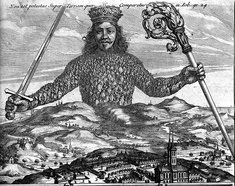|
Question or Term
|
Answer
|
|
That, the three principles of which are; limited constitutional government, the dispersal and separation of powers, and formal equality
|
Liberal State
|
|
Those two countries in which the idea of the nation-state differs from that of continental Europeans in that the nation and the state are intertwined rather than the nation being the the basis for the state
|
UK and USA
|
|
An English philosopher who was foundational to the development of developmental individualism, and who incorporated utilitarian thinking into classical liberal ideas
|
John Stuart Mill (1806 - 1873)
|
|
A nineteenth century development of liberalism closely associated with John Stuart Mill that advocated developmental individualism, negative freedom, and self help
|
Later classical liberalism
|
|
An important modern liberal, known for promoting the idea of equal opportunity, and a greater role for the state in improving economic equality
|
John Rawls (1921 - 2002)
|
|
That branch of liberalism which found its roots in the structural changes to society wrought by industrialisation, urbanisation, and the development of democracy and socialism
|
Later classical liberalism
|
|
A book written by Thomas Hobbes during the English Civil War arguing for an autocratic state to safeguard against the brutality and war of the 'state of nature' which would otherwise arise due to human imperfection
|
Leviathan
|
|
That which liberals believe should find its origins in arbitrating between the competing demands of individuals, preventing anyone's rights from being infringed upon by another
|
The State
|
|
That which liberalism believes is inherently rational, thus causing people to realise that consensus is how best to solve problems
|
Human Nature
|
|
A philosophy associated with Friedrich von Hayek and Milton Friedman that proposed an extension of individual freedoms by reducing the size and purview of the state, and creating a free market economy
|
Neo-liberalism
|
|
|
Question or Term
|
Answer
|
|
Those two historical events in which liberalism found its roots, in chronological order
|
The Reformation and the Enlightenment
|
|
An aspect of the conservative tenet of human imperfection, that holds that humans have limited mental powers of reasoning, making tradition, history, and practical experience a valuable guide and mold
|
Intellectual Imperfection
|
|
The liberal idea that people are capable of reason and logic and thus debate and discussion are superior in guiding people's interests compared to edicts from above
|
Rationalism
|
|
That individual who might have proposed a system of voting in which those with a university education received two votes
|
John Stuart Mill (1806 - 1873)
|
|
A philosophy proffered by John Stuart Mill that focussed on individuals' potential within a framework of education, individual liberty, and freedom of expression
|
Developmental Individualism
|
|
That which the state is often considered to be under liberal ideas
|
A necessary evil
|
|
A modern liberal and founder of second-wave feminism who sought to emphasise equality of opportunity within a liberal constitutional framework, rejecting radical feminism and patriarchy
|
Betty Friedan (1921 - 2006)
|
|
Where individual success is based on work and ability rather than inheritance, &c.
|
Meritocracy
|
|
A 1790 book by Edmund Burke written in strong opposition to the French Revolution and its ideals, arguing that tradition and empiricism are the antidote to tyranny
|
Reflections on the Revolution in France
|
|
The individual who viewed humans as fallible and flawed, though - through their communal nature - also capable of altruism and kindness, if only they would learn from history, tradition, and the Church
|
Edmund Burke (1729 - 1797)
|
|

